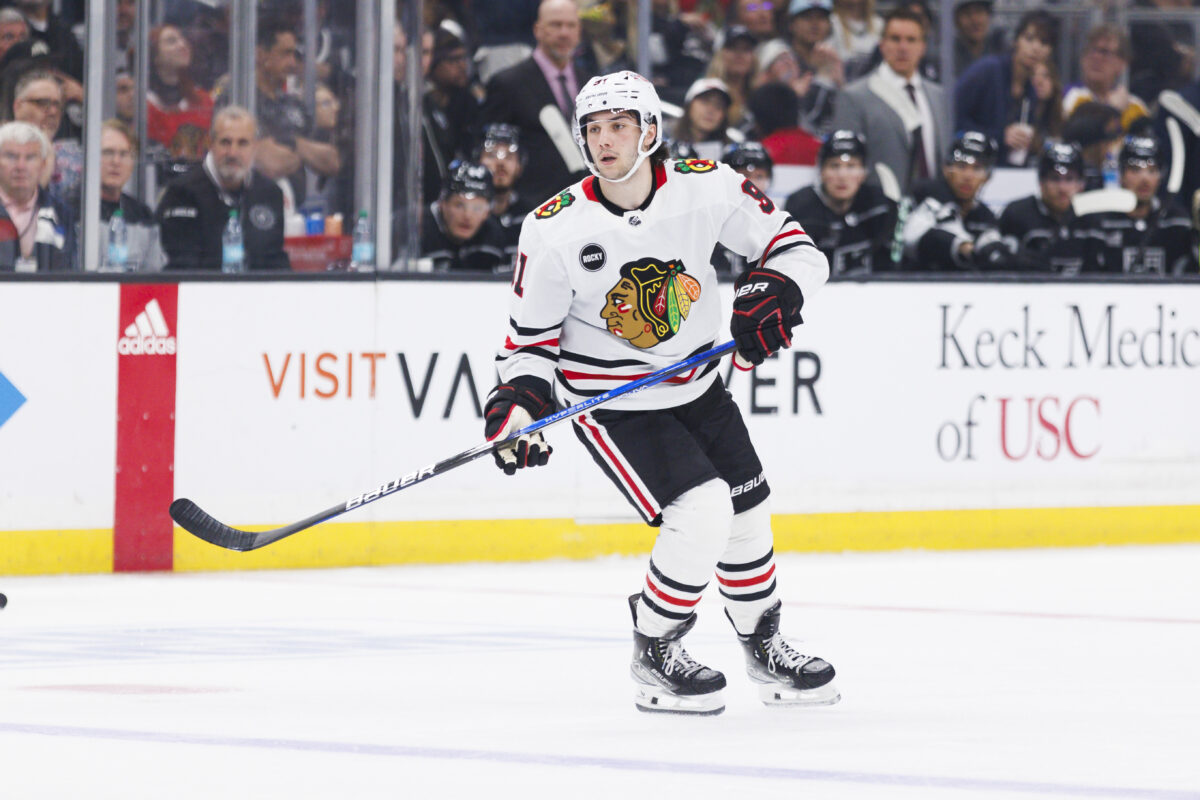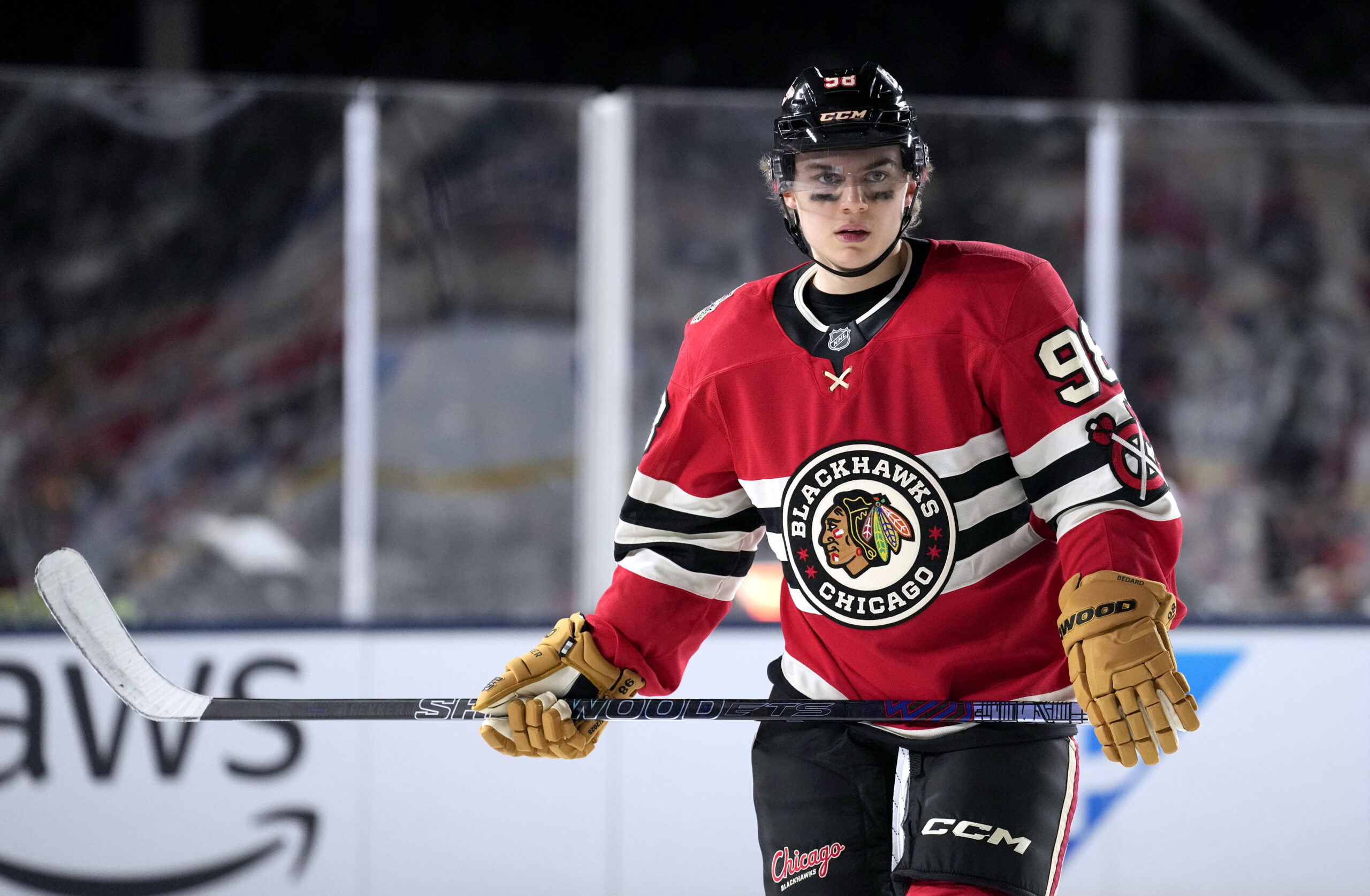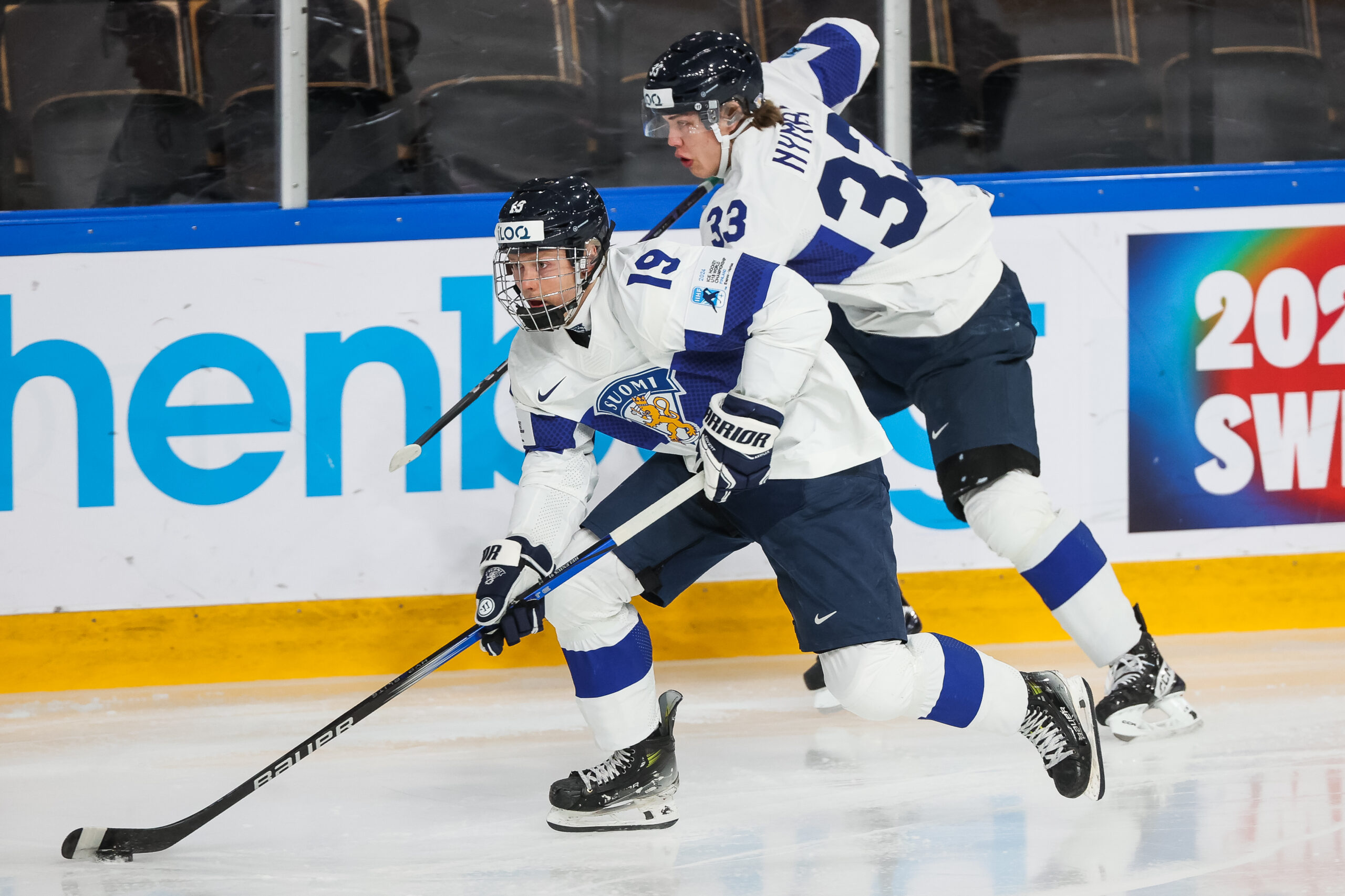The Chicago Blackhawks’ summer of change continues as we await the 2025 NHL Draft. We don’t know who general manager Kyle Davidson will select with the third overall pick, but we did learn that Jeff Blashill will be the head coach for the 2025-26 season. Blashill brought in a slate of new faces to complement him as assistant coaches, including Michael Peca.
Peca, a two-time Frank J. Selke Trophy winner, joins Anders Sorenson as the cohort aiming to lead the Blackhawks out of this rebuild. It doesn’t take a rocket scientist to understand the value Blashill and the Blackhawks organization see in Peca. The Blackhawks had the second-worst goals against total this season, and only one forward (Ilya Mikheyev) finished the season with a positive plus/minus.
Clearly, there’s room for improvement. A more thorough look at the numbers reveals the areas in which the Blackhawks’ forwards struggled. Peca, who played the game the right way, will hopefully transform those errors into strengths.
Forwards’ Defensive Woes
The goals against and plus/minus totals begin to tell how mightily the Blackhawks’ forwards struggled defensively. However, not everyone believes those numbers are entirely fair, as you can receive a minus on the scorecard after a mistake you had no hand in leads to a goal. While that’s fair, the Blackhawks’ plus/minus discrepancies are so apparent that they point to deeper issues strategically and structurally that Peca will address.
Connor Bedard’s numbers are a prime example. The 19-year-old forward finished the season with a minus-36 rating, 90 giveaways, and 70 penalty minutes. According to NHL Edge, he started 40.8% of his shifts in the defensive zone and 41.3% in the offensive zone. Whether he was on the ice for a goal, turning the puck over, or putting the Blackhawks on the penalty kill, Bedard and company played a lot of defensive hockey and started plenty of shifts in their own zone.
A turnover by Connor Bedard at the blue line on the power play, and Chicago gives up its 5th shorthanded goal of the season. #Blackhawks pic.twitter.com/EB9iFLmEbu
— Charlie Roumeliotis (@CRoumeliotis) January 21, 2025
Comparing Bedard to this season’s Selke Trophy winner, Aleksander Barkov, further frames how Bedard and the forwards must improve. Barkov finished the season with a plus-1 rating, 52 giveaways, and a mere 16 penalty minutes. He only started 35.6% of his shifts in the defensive zone and 48% in the offensive zone. At first glance, where Barkov began his shifts seems to explain his strong defensive numbers. If he’s not playing as much in the defensive zone, of course, he would have a better plus/minus, fewer giveaways, and fewer penalty minutes.
In actuality, the opposite is true. Barkov’s strong defensive play leads to more offensive zone starts and fewer defensive scrambles that often lead to goals against, turnovers, and bad penalties. That’s why he’s won the Selke Trophy three times. His assist in the video below demonstrates how avoiding turnovers leads to offense.
It might seem unfair to compare Bedard to Barkov. He’s 10 years younger with much less experience. But the comparison isn’t to excoriate Bedard but to illustrate the habits and mentality needed to win. And it’s not only Bedard who’s struggled. Frank Nazar finished minus-11 and had 57 giveaways in 53 games. He started 43.1.% of his shifts in the defensive end. These guys are the one-two punch of the organization’s future. It’s crucial to develop them into complete players who don’t cheat the game.
And lest you think I’m being overly critical, Peca’s diagnosis is the same.
Peca’s Philosophy Will Reframe Forwards’ Approach
Peca has made it clear that his first order of business will be ensuring the forwards don’t cheat when they play. “The details have to be ironclad first…There are all these little details in the game—finishing every check, stick details when you’re forechecking—that need to be [done] all the time, by every player, in every situation,” he told Ben Pope at the Chicago Sun-Times.
Those details—or the lack thereof—are the difference between turning the puck over or keeping it, being on the ice for a goal against or scoring a goal. Developing the right habits also increases the trust between coach and player, leading to more offensive zone starts and opportunities. Conversely, poor attention to detail—missing a stick check, for example—puts you and your linemates on their heels in a defensive posture. Either way, a positive or negative cycle can be generated from the details Peca wants to instill and fortify in players like Bedard and Nazar.

Nazar knows the value Peca will bring, saying last week, “With the history he has with the game, his strengths, the stuff he knows, [it’s] going to help a ton. Using what [Peca] can bring and [Blashill] can bring, using those two things to help round out my game…is going to be a huge part and a huge step.”
It’s important that Nazar said “round out my game,” because Peca doesn’t want to take away any forwards’ offensive production. It’s not an either-or situation. Peca reiterated, “You don’t want to take the way they see the game offensively away from them. It’s not like, if it’s a pie chart, you’ve got to cut offense from 80% to 40% because we’ve got to add more defense in there. It’s all part of the same game.”
Player and Coach Alignment
What we’ve heard from Blashill and Peca so far is a cohesive message about playing hockey the right way. There will be no cheating defense for offense, and players will be held accountable for mistakes. Blashill made that clear in his introductory press conference. Peca’s focus will be on developing the forwards under that philosophy. He has the expertise and experience to do so. And it sounds like the players know what’s coming and what needs to be done.




